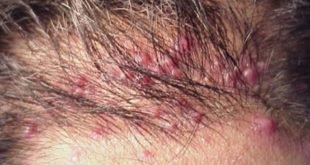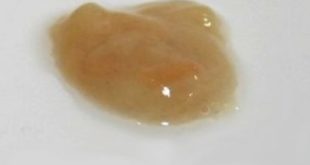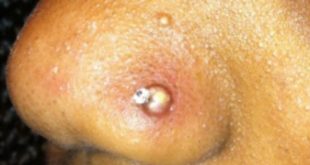Itchy ears can easily mean your ear is infected. The ear canal, ear lobe or the skin on the outer ear can become itchy and irritated. Your ENT can prescribe an external ointment to treat mild infections. You can also use essential oils for itchy ears.
Itchy ears meaning
Contents
The ear canal can appear to be normal on examination or there can be some scaling of skin. People aggravate the problem by use of things like bobby-pins, coat hangers as well as the tooth picks so as to scratch the ear. This may bring about abrasions to the ear canal.
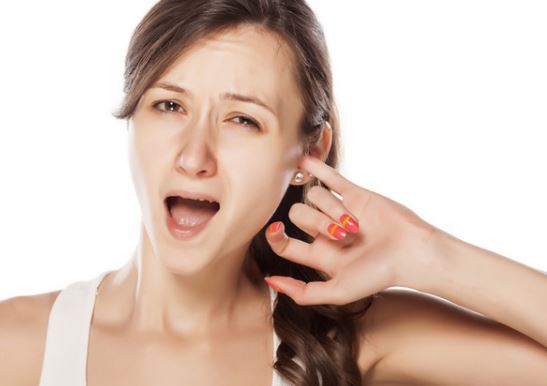
Any break that is in the skin is able to allow bacteria to enter via this particular protective barrier. The ear can then be infected hence the need for it to be treated the same way as the swimmer’s ear.
Itching by itself without any evidence of infection can be treated by use of a mild steroid ear drop. A few drops are usually placed in the ear will assistance to decrease the level of itching.
Another useful treatment is through the use of 60% alcohol (also known as the rubbing alcohol) as an ear drop. Itchy ears can be the first indication that an infection is developing in the ears. If the ears are infected the alcohol can then burn.
Itching ears superstition and myth
If the right ear is itching it implies someone is being unkind to the person who is experiencing the itchy ear. If the left ear is the one that is itching then it implies that someone is being nice about a person who is having an irritated ear canal. There are several and different superstitions about parts of the body that is itching.
What causes itchy ears?
Itching in your ears can be caused by dermatitis, psoriasis, ear infections, dry skin, accumulation of ear wax etc. In some cases, listening to loud music and wearing earphones or ear pods can lead to irritation and itching of the ear canal.
1. Dry skin in ears
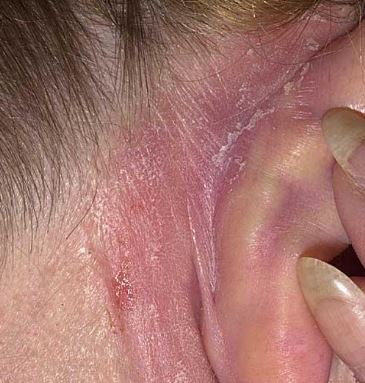
If the ears are not producing enough amount of wax, the ear skin is able to become dry and also very itchy. Wax contains the lubricating effects, and its absence is able to lead to an experience of being itchy. You can as well notice flaking skin that is coming from the ear.
2. Ear canal dermatitis
Itchy ears happens when the skin in or around the ear canal is inflamed. This condition may be due to an allergic reaction to the products that are applied in or near the ear, like personal care products or even metal in earrings. Another type of the dermatitis in the ear is known as the aural eczematous dermatitis, which does not have any known causes.
3. Otitis externa (outer ear infection)
Otitis externa, or also known as the infection of the outer ear canal, may lead to the ear pain and also itching. This is also called the swimmer’s ear and is brought about by inflammation, which is normally because of infection. It may as well cause redness and swelling.
4. Psoriasis
Psoriasis is a skin condition that leads to a person developing a red rash. Psoriasis can happen on visible parts of the body, like the arms or even inside the ears.
5. Insufficient earwax
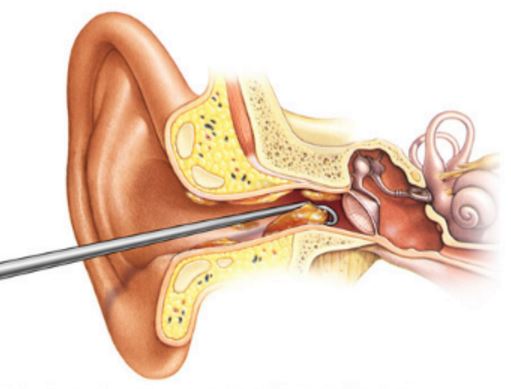
You can as well have to deal with itchy ears if the ears don’t produce enough amount of earwax. This normally causes dry ears and you can notice flaking skin dropping out of the ears.
6. Ear infection
An ear infection or also known as the otitis media can bring about severe pain and make the ears feel itchy. If you’re a swimmer, you’re likely to have this condition since the outer canal of the ear becomes infected, and the infection leads to a swelling and redness.
7. Use of hearing aids
Regular use of the hearing aid can make water that is trapped in ears. Sometimes, the ears will become allergic to hearing aid itself – this is normally true with the ill-fitting hearing aid. All the issues will cause itchy ears.
7. Allergies
If you experience asthma, or other allergy issues, then you are likely to develop an ear infection like otitis externa. It is normally brought about by a reaction to a foreign body that is being exposed to the ear, like the earplugs, ear medication, or shampoo. The doctor can make use of an ear wick or even a sponge so as to treat the itchy ears.
8. Excessive moisture
If you’re normally exposed to the humid environments or even swim in polluted water, then you are likely to develop itchy ears. Contaminated water is able to enter the ear canal and lead to an infection. Sometimes, the excessive moisture can wash away the earwax, leaving the ears very dry and itchy. The itching can prompt scratching that damages the skin and infect the external canal also.
Other causes
Several other factors can as well lead to an itchy ears. This includes stress, medications, and also extreme heat or even cold. In very rare cases, severe ear itching can be an indication of a serious and life-threatening condition, so it is vital to set an appointment with the ENT specialist so as to rule out serious issues like anaphylaxis.
Itchy inside ear canal
The inside of your ear, which is the ear canal can also become itchy and irritated. This could be due to inflammation, infections or allergies that affect the nose and throat.
Inflammation in the ear canal
One of the main causes of itchy ears inside the ear canal is inflammation of the outer ear canal known as the otitis externa. Doctors say that inflammation of ear canal may be brought about by infection, allergies or even other reasons. One of the main symptoms of the condition is itching, although hearing may as well be affected and can be accompanied by the discharge and pain.
Ear Infections
Ear infections are a common reason as to why people sometimes have ear canal irritation. Excessive moisture can lead to itchiness in the ear. This is due to the fact that a lot of moisture can cause bacterial infections.
This may very often affect the swimmers who get itchy ears due to the water getting into the ear canal and can lead to an irritation and also an infection. If you are a swimmer, then it is better to try and avoid water entering the ear in the first place, or you might find ways that can be applied to get the water out of the ears from the doctor’s office.
Infections can also be brought about by cleaning the ears the wrong way. Doctors say that the ears are normally self-cleaning and the ear canal should not in any way itch. They add that you should not use cotton swabs, bobby pins, or even things such as these to clean the ears.
Fungal Infections in the ear canal
Although not as very common as the bacterial infections in the ear, fungal infections can lead to chronic itching in the ear canal. Various studies indicate that fungi cause around 15% of all cases of the itchy ears. It can as well affect people who have diabetes and the underlying problems with their low immune system.
Psoriasis and Dermatitis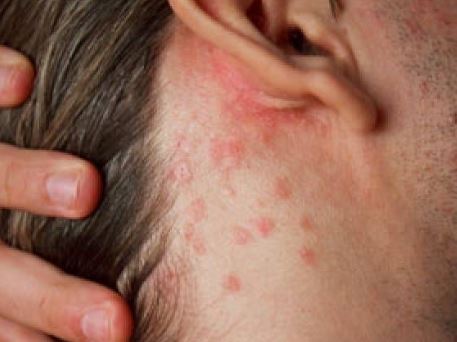
Another reason a person sometimes have itchy ears especially in the ear canal is due to the atopic dermatitis (eczema) or even the psoriasis. Both conditions are able to affect any area of the body, which includes the ear canal.
Researchers indicate that inflammation brought about by dermatitis leads to itching in the ear and can cause infection if it is left untreated. They thus recommend against using cotton swabs, and all other irritants in the ear so as to avoid making the inflammation worse.
Treatment for itchy ear canal
Although an outer ear infection or even the itchy ear canal is able to sometimes clear up by itself, it is a problem that may be stubborn and much persistent. Treatment falls into two stages:
- Stopping the itch, and also
- Clearing up the skin condition.
Firstly, it is recommended that a person consults the doctor so that she can clean the ear if necessary and then prescribe ear drops. The doctor can as well take a swab of the ear canal so as to determine whether the fungus is available. Results from a swab normally take few days to come back.
- Ear drops will have a minimum of two very active ingredients: An ingredient like hydrocortisone that can quickly subdue the itchy ears and any swelling, and also an antibiotic so as to kill the bacteria which leads to an infection.
- If you are diagnosed by the doctor with having a fungal infection, then the doctor might also prescribe the anti-fungal drops or even an ointment as well.
- While still using ear drops that are prescribed by the doctor, you may start to take preventative measures so as to ensure that the itchy ears or infection does not return. Just because the ear drops have cleared the problem, don’t assume that it is not able to come back. Preventative action is a process and the more vigilant a person is, the greater chance that you have of keeping the ear canal itch-free.
It also recommended that you don’t become overly reliant on the pharmaceutical ear drops in the long-term. Although they are able to work wonders at fighting of the infection and also stopping the ear canal from irritation, long-term use is to be avoided since they can be harsh for a sensitive skin in the ear.
Once the itch has disappeared and the treatment has finished, seek out the natural alternatives to prescription ear drops, like the olive oil.
Home remedies for itchy ears
Ear infections are brought about by bacteria or even the viruses that are in the middle ear. Itchy ears happen often in children than amongst the adults.
Some contributing factors that cause the ear infections are wax buildup, upper respiratory infections, environmental allergies, fetal alcohol syndrome, nutritional deficiencies and also the internal injuries.
Some of the common signs that a person is suffering from an ear infection are irritated ears, tugging at the ear, difficulty sleeping, poor response to sounds, fluid draining from the ear, vomiting and so on. Here are the home remedies for itchy ears.
1. Salt
Salt is one the most readily found home remedy for itchy ears.
- Heat 1 cup of salt on a pan over low heat for 5 minutes. You can as well heat it in a microwave.
- Place the hot salt on a clean cloth and seal the open end using a rubber band (or even tie a knot).
- When it is very hot, lay down and then put the cloth on the itchy ears for 10 minutes.
- Repeat the remedy daily as many times as required. The heat that is generated from the sock can assist to draw out fluid from the ear and thus relieve swelling and pain.
As an alternative, you can make use of a cup of rice in the same method that is described above.
2. Garlic
Garlic contains an antimicrobial properties and also the natural pain relieving properties, making it very effective in the treatment of itchy ears. There are a few methods that can garlic be used as a home treatment.
- Make garlic oil by cooking about 2 garlic cloves in 2 tablespoons of the sesame oil or even the mustard oil until it turns black in color. Strain the solution. When it is hot, use 2 drops of this oil in the infected ear as the ear drops.
- Alternatively, you can as well boil 2 fresh garlic cloves in water for 5 minutes, crush them and add some small amount of salt. Put the mixture in a cloth and place it against the itchy ears.
- Consuming 3 cloves of raw garlic daily also assists to speed up the healing process.
3. Basil
You can as well make use of the holy basil to treat minor earache and itchy ears. It can relieve ear pain and also reduce infection.
- Crush 5 fresh holy basil leaves gently so as to extract the juice. Use the basil juice on or even around the infected ear. Avoid having the juice get in the ear canal.
- You can as well mix 2 drops of holy basil oil with an equal amount of carrier oil such as the coconut oil. Soak a clean cotton ball in the mixture and slowly wipe the inside of the ear, around the outer edge and also behind the ear. Repeat the procedure twice daily.
4. Apple Cider Vinegar
To remove the fungus that can be leading to the ear infection, apple cider vinegar is a very good option.
- Mix 1 part apple cider vinegar with an equal amount of water or even the alcohol. Soak a clean cotton ball in the solution.
- Put the cotton ball in the ear just like a plug and then leave it for about 5 minutes.
- Remove the cotton ball and then lay down on the opposite side so as to drain the liquid from an ear. Use a hair dryer so as to dry the ear as much as possible.
If the apple cider vinegar is not found, then you can use the white vinegar. If the cause of the itching ears is in the Eustachian tubes, try gargling using the apple cider vinegar.
5. Olive Oil
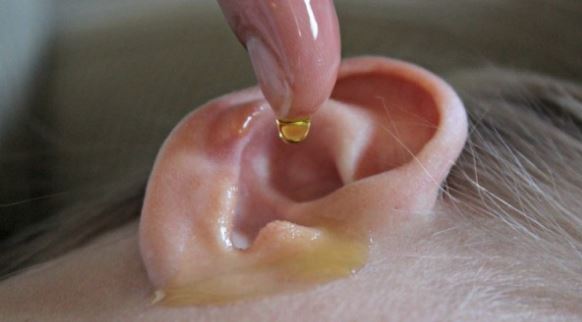
One of the main causes of itchy ears is wax in the ear catching fungal or bacterial growth causing a blockage in the Eustachian tubes. You may easily clear the obstruction using the olive oil.
- Warm some amount of olive oil slightly. Put 2 drops of the warm oil into the itchy ears.
- The oil will lead to the wax to soften. Get rid of the infected wax using the cotton-tipped swabs. Be very careful not to put the swab very far in the ear or you can damage the eardrum.
Alternatively, you can as well use mustard oil.
6. Warm Water Bottle
As soon as possible, use some heat to the itchy ears. This can quickly relieve some pain and can as well prevent micro-organism infestation.
- Press a warm water bottle or even the heating pad against the ear.
- You can as well use a warm compress. Dip a clean washcloth in the lukewarm water, ring out the excess water and place the washcloth on the itchy ears.
- Do not use the heat to the ear for longer periods of time. Start with 5 minutes, remove the heat for a while and then repeat the process as required.
7. Onion
Onion is a common ingredient that is used in cooking. It contains medicinal properties, including the treatment of itchy ears.
- Chop 1 small onion, put it in a bowl and heat it for 2 minutes. Allow it to cool and then strain out the juice. Put 3 drops of the juice in the infected ear, leave it for 2 minutes and then turn the head to let it drain out of the ear.
- You can as well bake an onion for 30 minutes, cut it into halves and then put one half in a thick cotton cloth. Place the cloth on the ear for about 5 minutes. Wait for 15 minutes and repeat the procedure.
8. Tea Tree Oil
While essential oils are some of the best for itchy ears, tea tree oil can get rid of infections fast. The mild antibacterial properties that are found in the tea tree oil can provide an instant relief from earache. To treat an itchy ears, follow the steps indicated.
- Mix 3 drops of the tea tree oil, two tablespoons of the olive oil, a teaspoon of apple cider vinegar. Warm the mixture.
- Lay on the side with a head on a towel. Use a dropper to fill the ear with the mixture and let it sit for about 5 minutes. Then turn and then lay on the other side so that the mixture drains out of the ear fully.
- Follow the remedy 3 times a day for 2 days.
9. Mango Leaf Juice
Mango leaf extract is a very quick and effective treatment for itchy ears.
- Crush 3 soft mango leaves so as to extract the juice. Slightly warm the juice.
- Use a dropper to put 4 drops of the juice into the infected ear. Within 5 minutes, you will feel relief from pain.
- Follow the remedy 3 times a day for full relief from an itchy ear.
10. Breast Milk
Breast milk normally contains natural antibodies that can assist to speed up the healing process of any kind of an ear infection. It can alleviate the swelling and also any discomfort and can do away with an ear infection within a period of 2 days. This remedy works for both children as well as the adults.
- Use a dropper to put 3 drops of breast milk into the affected ear.
- Repeat the procedure every few hours as required.
Further references
- Itchy Ears:
- What causes itchy ear? 5 possible conditions:
- Itchy Ear Canal:
- Causes and Natural Home Remedies:
- 5 Home Remedies for Itchy Ear: http://homeremedyshop.com/5-home-remedies-for-itchy-ear/
- Home Remedies for Ear Infections: http://www.top10homeremedies.com/home-remedies/home-remedies-for-ear-infection.html/3
- How to Treat an Itchy Ear Canal:
